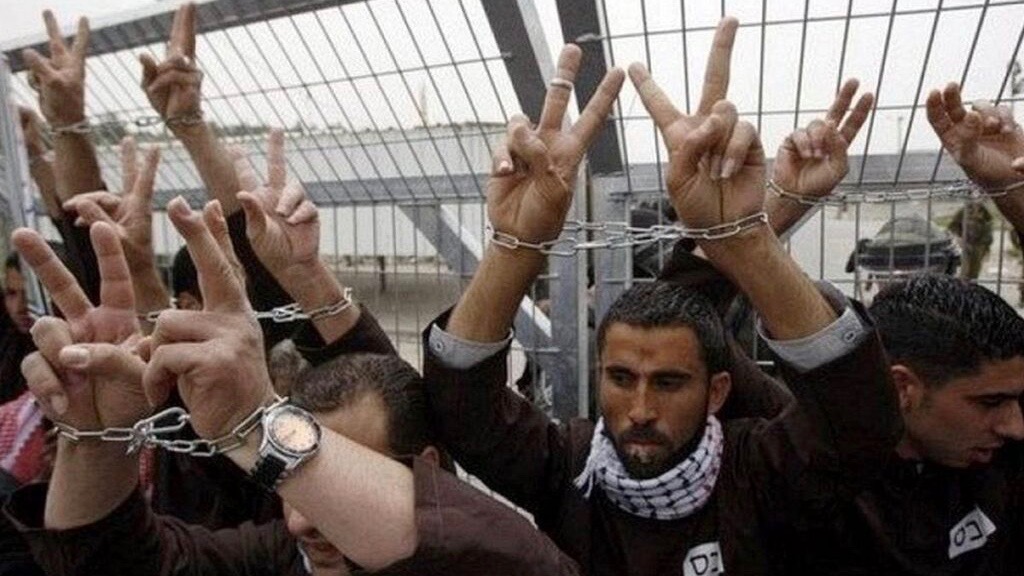Over 400 Palestinian prisoners launched an open-ended hunger strike against the harsh measures imposed on them by Israeli prison authorities in the wake of the recent prison break from Gilboa prison, multiple news reports stated on Wednesday, October 13. According to a statement by the Palestinian Prisoners’ Society (PPS), the mass hunger strike was launched as part of the “resistance program announced recently by the prisoners’ National Emergency Committee.”
Most of the 400 prisoners on strike are affiliated with the Palestinian Islamic Jihad (PIJ) armed resistance group. The National Emergency Committee, formed following the imposition of the harsher punitive measures against prisoners, unites all factions and dissolves all individual regulatory bodies of these factions across prisons in Israel.
PPS in its statement added that after the hunger strike began, some prisoners delivered a letter to the prison authorities stating their demands. The prison authorities have reportedly already started cracking down on the striking prisoners by forcibly transferring them to separate cells because of their shared political affiliation, a move that was strongly opposed and resisted by the prisoners. PIJ warned the prison authorities against trying to suppress the protests, adding that it holds the Israeli Prison Service fully responsible for the health and physical well-being of the prisoners.
The demands put forth by the prisoners include an end to repression and abuse, stopping the forcible transfers of prisoners from their original cells and prisons in order to separate them, release of prisoners being held in isolated cells in solitary confinement to the general population cells and return of detention conditions to what they were before the September 6 prison break. The prisoners also sought an end to the Israeli policy of illegal arbitrary administrative detention with unlimited renewals that is used against Palestinian detainees and political prisoners to hold them indefinitely without charge or trial.
A few weeks ago, more than 1,400 Palestinian prisoners planned to go a similar mass hunger strike as part of a unified prisoners’ resistance movement against Israeli abuse and repression, but the strike was suspended after the prison authorities agreed to meet their demands.
The prisoners who were recaptured after the September 6 escape underwent multiple rounds of interrogation and were detained in solitary confinement. One of the recaptured prisoners, Mohammed Ardah, embarked on a hunger strike last week to protest against the abusive treatment and brutal torture he was made to suffer since his recapture, including being held in solitary confinement in extremely unsanitary conditions. He and the other recaptured prisoners also had various extreme restrictions placed on them, such as a two-month bans on family visits and canteen access, fines, and denial of personal belongings or basic living items such as pillows, warm clothes and blankets for the upcoming winter season. There are approximately 4,600 Palestinians prisoners currently being held in Israeli jails, including 200 children and 35 women. Roughly 450 of them are being held under the illegal administrative detention policy.





